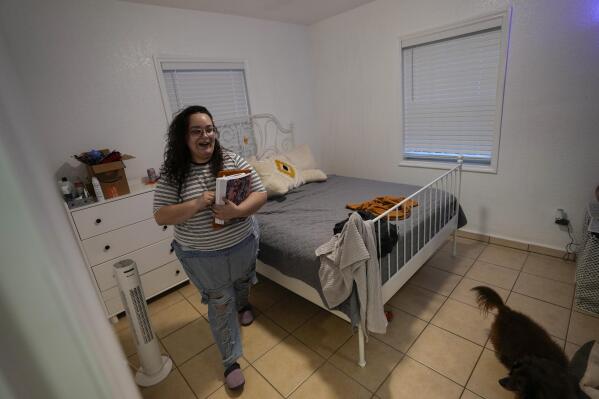Study sees acceleration
There is “no end in sight” to rent increases in major cities
This audio version was artificially generated. More info | Send feedback
Many people can no longer afford to buy real estate because of the increased interest rates and are turning to rental apartments. This drives up rents – especially in sought-after large cities. A study sees major problems in Berlin in particular.
High demand for living space, stalled new construction, waiting property buyers: According to a new study, the pressure on the rental market in German cities has increased. In the first half of the year, asking rents in Berlin, Hamburg, Munich, Cologne, Frankfurt, Düsseldorf, Stuttgart and Leipzig rose by an average of 6.7 percent, as an analysis by real estate specialist Jones Lang LaSalle (JLL) shows. In the same period last year, the rent increase was 3.7 percent.
This means that the dynamics in the metropolises have recently been stronger than in independent cities: there, the asking rents for new buildings and existing apartments rose by 2.7 percent within twelve months. In the districts, advertised rents rose by 4.9 percent. Asking rents rose particularly strongly in Berlin and Leipzig, where double-digit percentage increases were recorded, according to the study. In Berlin there was a net immigration of 86,000 people in 2022, while only a good 17,000 apartments were completed, explained JLL. The Berlin housing market is becoming increasingly tight. In the other metropolises, rent increases were much more moderate, and in Stuttgart the asking rents even fell slightly.
Offered rents do not mean a deal has been made; sometimes the agreed rent differs – but this happens less often than when buying real estate. “There is an enormous shortage of supply in all the metropolises considered, which will be exacerbated by the stagnation in housing construction,” said JLL residential real estate expert Roman Heidrich. “There is therefore no end in sight to the rent increases.”
Buying is cheaper in major cities – except in Berlin
Pressure also comes from increased loan interest rates, which are deterring interested parties from buying real estate and pushing them into the rental market, it said. The study also shows how expensive housing is in the eight metropolises. Rental apartments there were offered at an average of 15.38 euros per square meter, around 50 percent more expensive than in independent cities (10 euros) and 79 percent more expensive than in the rural districts (8.61 euros).
Meanwhile, purchase prices for new buildings and existing apartments remained under pressure. According to JLL, asking prices fell by 7 percent in the first half of the year, while an increase of 7.5 percent was recorded in the same period last year. While residential real estate rose slightly in price in Berlin, there were significant declines in all other metropolises – most notably in Munich, Stuttgart and Düsseldorf. Prices in major cities rose sharply during the long real estate boom. According to JLL, prices recently fell significantly less in independent cities (minus 5.2 percent) and rural districts (minus 2.2 percent).
Offer prices do not provide precise information about the actual purchase price. “The property market reports from the expert committees, for which real purchase cases are evaluated, sometimes show significantly higher price discounts,” said JLL expert Sebastian Grimm. The prices for residential property in Germany have been falling for months. According to the Federal Statistical Office, in the first quarter they fell by 6.8 percent compared to the same quarter of the previous year. Figures for the second quarter are still available.


